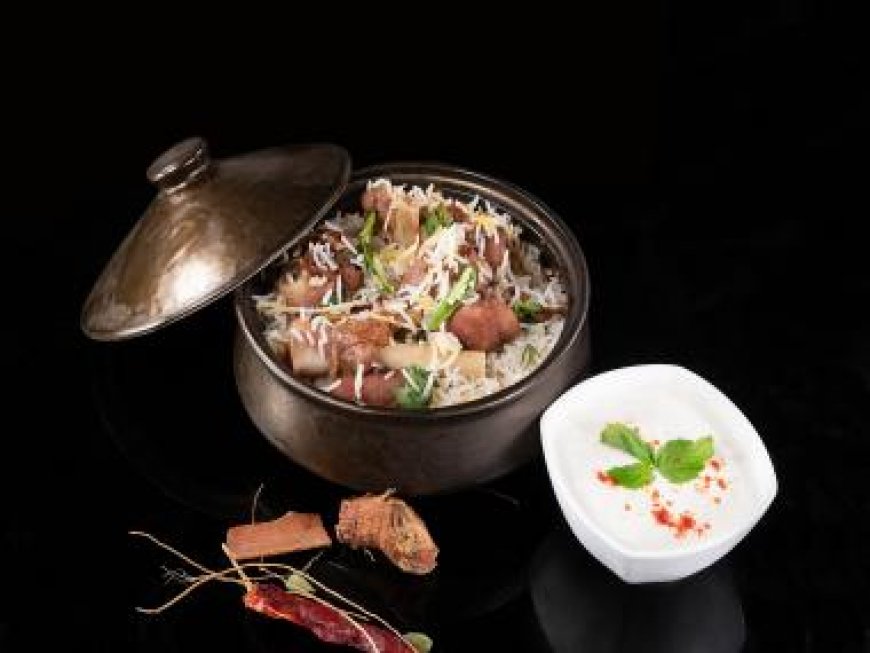Food for thought | The Biryani Story: India’s most loved one-pot meal
Food for thought | The Biryani Story: India’s most loved one-pot meal

Biryani as we know is a celebratory dish in India. But it’s origin is still a mystery. There are many theories about the origin of biriyani in India. Some believe that the dish originated in Persia and the Mughals brought it to India, while others believe that it originated in south India. It was developed in the Mughal royal kitchen to feed the undernourished Mughal soldiers. Regardless of its origins, it has become the royal cuisine of India that never fails to impress.
According to BBC reports, the lazy scholars are quick to opine that it was the genius of Indian people who transformed the “Cinderella of Central Asian pilaf” into the sparkling biryani, but it is difficult to buy this “thesis.” There can be little doubt that biryani originated in Iran. Even the name biryani can be traced to the original Persian “birinj biriyan” – literally, fried rice.
So, how did the hero biriyani arrive in India? The report further says that, one theory suggests that biryani was brought to India by the Mughals, who ruled over the Indian subcontinent. According to this theory, the Mughals, known for their love of food, brought biryani to India from Persia. The word “biryani” is derived from the Persian word birian, which means “fried before cooking.” This theory is supported by the fact that the Mughals were great patrons of Persian cuisine and often incorporated Persian ingredients and cooking techniques into their food.
Another theory suggests that biryani originated in South India, where it was known as Oon Soru or one-pot meal. According to this theory, biryani was a dish created by the Muslim rulers of the South Indian kingdoms. The dish was then adopted by the Mughals, who introduced it to North Indian cuisine.
Various theories published on biriyani suggest that there is enough historical evidence of biryani being consumed in India and beyond. In the 16th century, the Portuguese traveler Duarte Barbosa wrote about a rice dish prepared with meat, spices, and saffron in India. “This dish, which he called biriani, is believed to be an early version of biryani,” says a report.
Biryani is more than just a word; it’s an emotion for us, embodying royalty and nobility. It is an integral part of every occasion, festival, and celebration. Our love for biryani is so strong that 186 biryanis were delivered every min in 2022.
Sidhant Kalra, Managing Director and CEO says, “Biryani has travelled from one state to another, acquiring different flavours from every region. There’s a unique flavour of every type of Biryani you try – be it Hyderabadi, Lucknowi or from Purani Dilli, each place has added its unique spices, culture, and heart to the dish. Even the biryani we serve at Khan Chacha has evolved so much. It is inspired from the age-old layering technique of Hyderabad and the beautiful blend of flavours of old Delhi biriyani.”
Chef Ankur Gulati, Executive Chef The Claridges, Delhi says, “Biryani is more than just a dish; it is a delicacy and a cultural symbol. Biryani evokes a sense of home and belonging, reminding people of their roots and cherished memories with family and loved ones. In essence, biryani is not just any other dish; it is a desi dish that holds deep sentimental value.”
Biryani is India’s complete one pot meal. “While pulao is typically served as a side dish or part of a meal alongside gravy-based vegetables or dals, biryani is a complete meal in itself. It is generally served with mirch ka saalan and chutney,” adds Chef Ankur Gulati.
What's Your Reaction?



























































